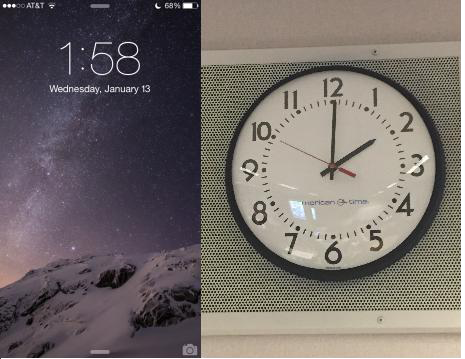
he bell rings in the MVHS library, a signal for studying and chattering students to finally go home. The clock reads 3:00, right on the dot. But a quick glance at a phone or laptop clock tells a different story — in reality, it’s 2:57.
Before entering MVHS, many students are informed that the clocks run three minutes faster than standard time. That’s partly true. And partly not.
According to Facilities Manager Chris Kenney, all the clocks at MVHS are controlled by a single system separate from the standard time. The clocks have to be reset every three weeks because they run faster than normal time, and if they aren’t reset, the inaccuracy will continue to grow. That’s why the clocks may sometimes read two or three minutes ahead, and in rare cases, be right on track with our phone and laptop clocks.
The nonuniform nature of MVHS clocks is something students adapt to, and although two minutes doesn’t seem like much, it may be the difference between being forced to go the office for a tardy and making it to your seat right when the bell rings.
“Sometimes, I don’t know when I’m late or not, and I have to constantly try to listen to hear if the first bell has rung or not,” senior Sunaya Krishnapura said. “It’s really difficult to tell when the clocks are slow or fast, because they constantly change.”
Even though the volatile nature of MVHS clocks can be inconvenient at times, replacing it would actually be a very complicated — and expensive — process.
“It’s not like changing out a single clock, because it’s a system that has to do with the announcement system, and the speaker system,” Kenney said, “You can’t just replace the clocks. You’d have to replace everything.”
MVHS clocks may always be a little bit ahead, or a little bit behind, or neither, because it’s the way the system is structured. At least now, the myth of clocks being ahead has been broken.








